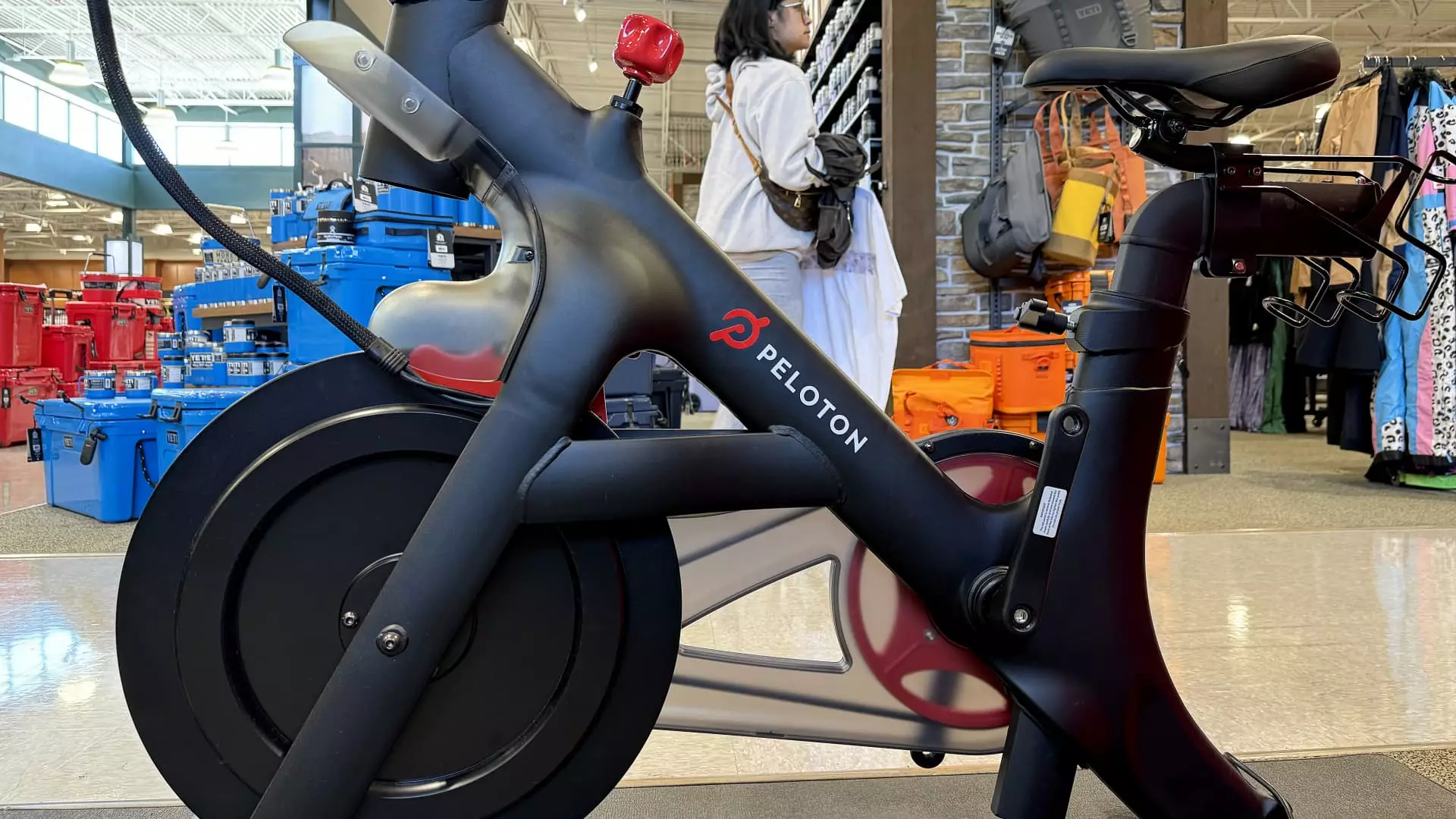In an era where sustainability and consumerism intertwine, Peloton’s recent unveiling of Repowered, a resale marketplace for used exercise equipment, raises significant questions about not only the company’s strategy but the broader implications for the fitness industry. As home fitness continues to flourish amidst a backdrop of pandemic effects, the reselling of used gym gear is gaining momentum. Peloton seeks to harness this trend, giving members the option to sell their underused bikes and treadmills while simultaneously drawing in potential new customers through a cost-effective entry point. But is this initiative truly a wise investment in corporate growth, or is it an admission of underlying operational flaws?
Understanding the Mechanism Behind Repowered
At first glance, Repowered appears to offer an innovative solution, using generative AI to assist individuals in pricing their Peloton gear. It further incentivizes the sale process by allowing sellers to pocket 70% of the sales price—an appealing proposition, albeit one that raises concerns about the commercialization of something that should inherently encourage fitness and well-being. The added benefit of discounts on future purchases creates a self-perpetuating cycle, as it tempts sellers to buy new equipment even as they divest from the old. However, this model heavily relies on the almost comical reality that many existing machines are serving as glorified coat racks, a stark testament to the unfortunate reality of fitness equipment absorption into the realm of the neglected.
This design, while clever, also hints at Peloton’s precarious reliance on subscription revenue—a model that has become less stable with rising churn rates among subscribers. The reality is that a large portion of the potential customers isn’t keen on maintaining monthly fees and is searching for economical alternatives. In venturing into a robust resale environment, Peloton may just be trying to let the air out of its own tires instead of innovating beyond plain profit motives.
A Challenge to Traditional Marketplaces
By entering the resale space, Repowered stands as competition not just to P2P platforms like Facebook Marketplace but also to specialized startups like Trade My Stuff. Such a move emphasizes Peloton’s desire to control the narrative of resale and pre-owned products, effectively drawing in a consumer base already adapting its approach to fitness. By providing a secure environment for buyers and sellers alike, the marketplace could streamline the process of finding a used machine without the fear or ambiguity that typically accompanies repo sales.
Yet, this initiative raises questions about how much control Peloton wishes to exert over its customer base. Is the intent to pave the way to a loyal community of users or to commoditize fitness to push more sales? The lines between community support and corporate profit are becoming increasingly blurred, as Peloton strikes a precarious balance between promoting health and maximizing revenue.
Does Resale Represent True Value?
Affordability is undoubtedly attractive, especially when considering that a used Peloton bike can now be undercut by the activation fee reduction from $95 to $45. The strategy cleverly appeals to a broader audience, enticing them with budget options and rock-bottom prices. However, the underlying question remains: are used exercise machines genuinely valuable, or merely a stopgap in an industry that often demands newness? As individuals pivot towards buying used, one has to ponder whether the allure of these machines, designed to motivate weight loss and fitness, diminishes in the secondary market.
The physical and mental hurdles that many individuals face while engaging with fitness equipment cannot be overlooked. Does selling a slightly used treadmill impel new users toward fitness, or does it subtly propagate the sentiment of disposability and inadequacy in their fitness journeys?
The Larger Implications for Peloton’s Future
In presenting Repowered, Peloton may well be flipping a script. The fitness technology leviathan has leveraged its strong brand identity over the years, but recent struggles and market distortions have sent it scrambling for reinvention mechanisms. While the company might enjoy an immediate uptick from this resale venture, it prompts critical reflection on the sustainability of such business models. As fitness evolves in the post-pandemic world, do they dare to pivot with the times, or will they risk falling into an ever-encroaching abyss marked by discarded equipment and fading loyalty?
As we witness this unsettling strategy unfold, the consensus remains clouded—could Repowered be Peloton’s saving grace or simply a final throe in the struggle against a more ruthless market?

